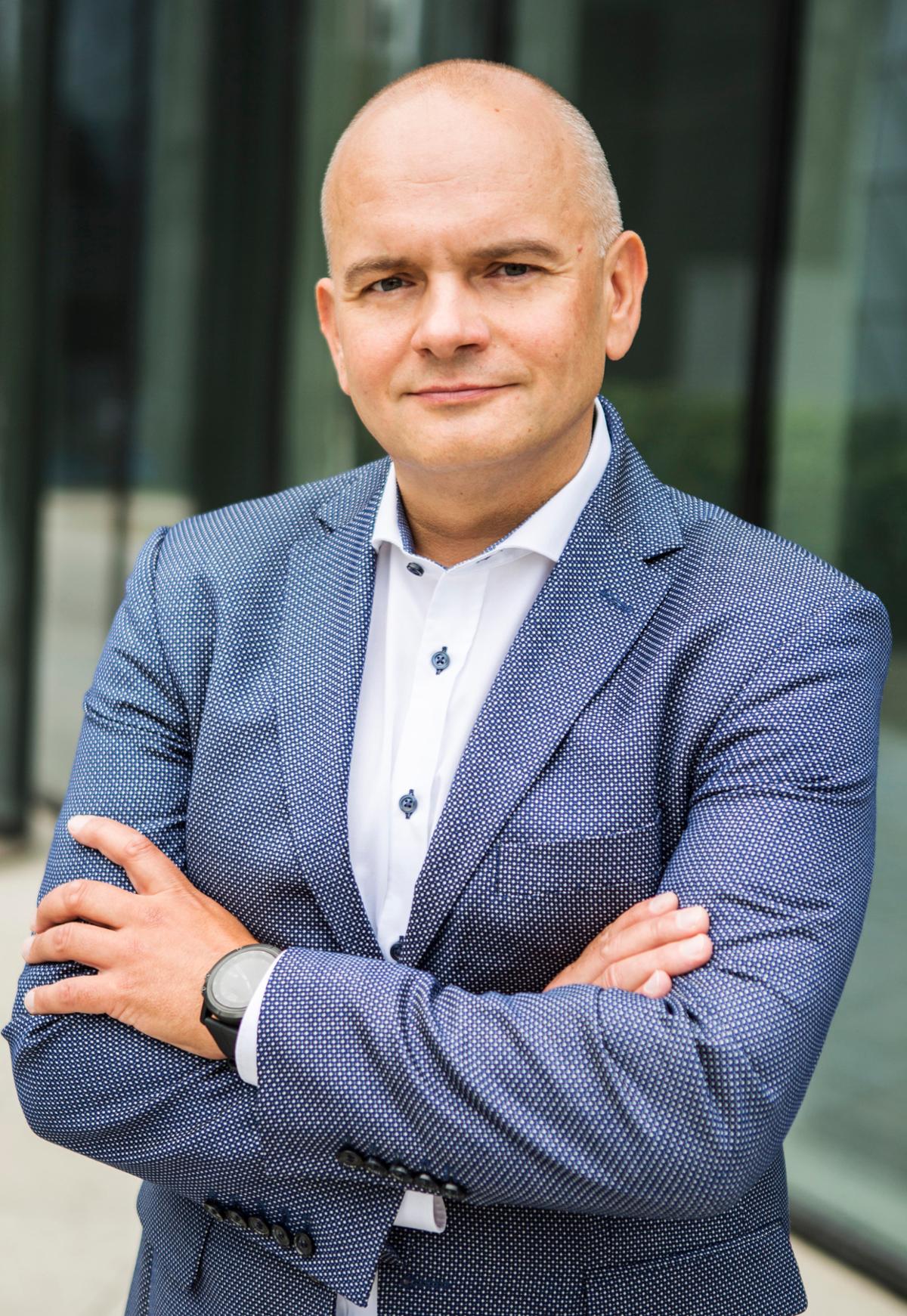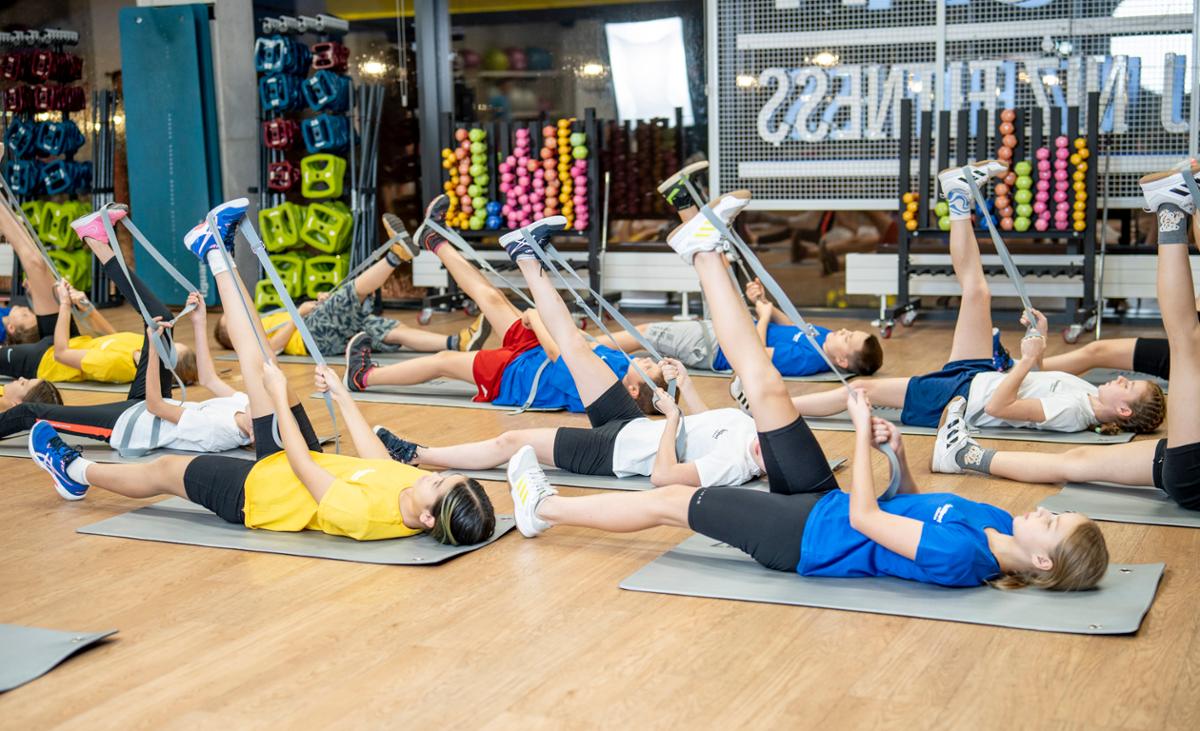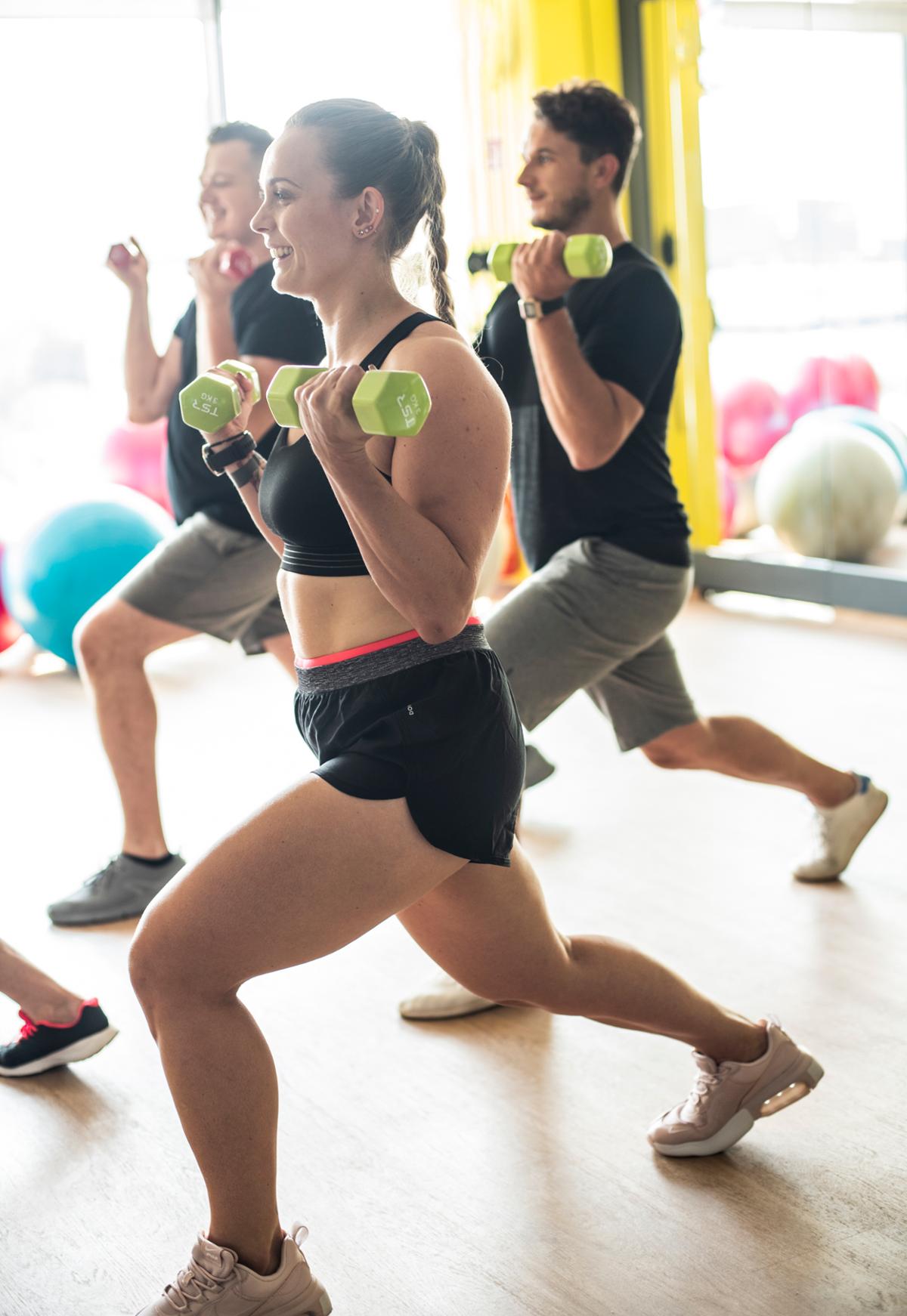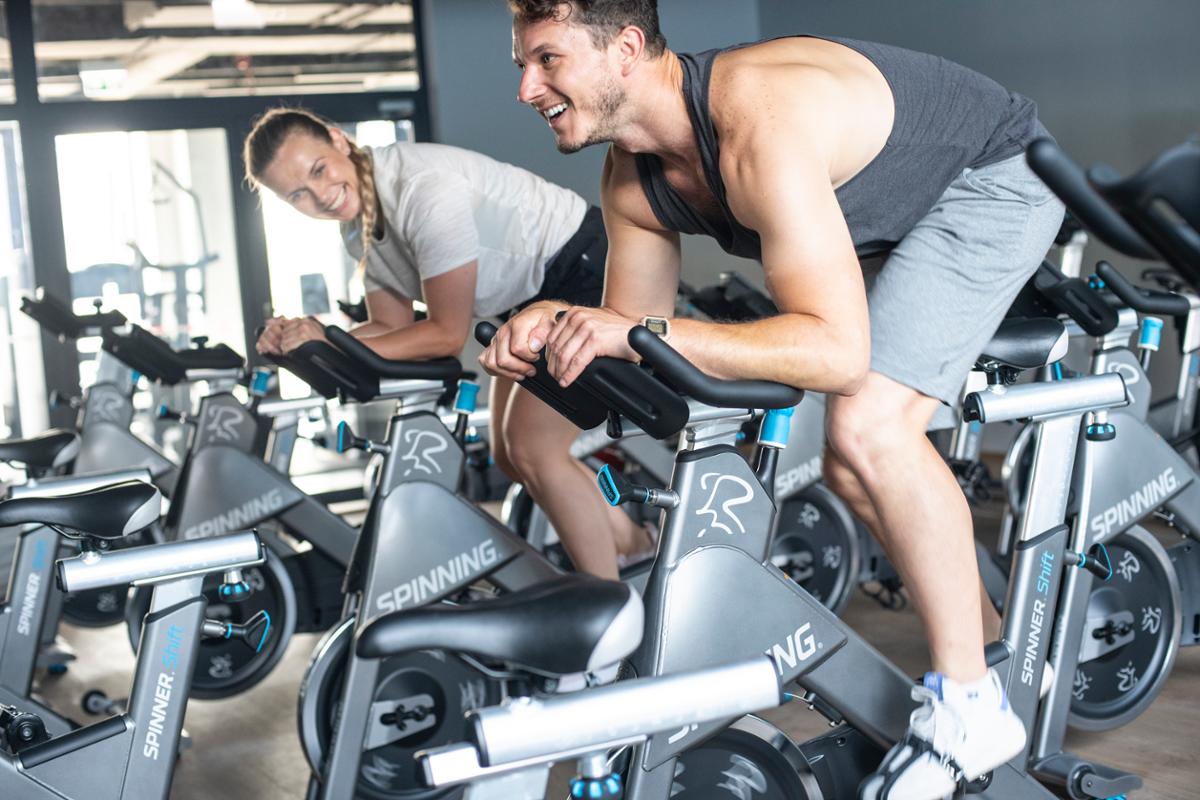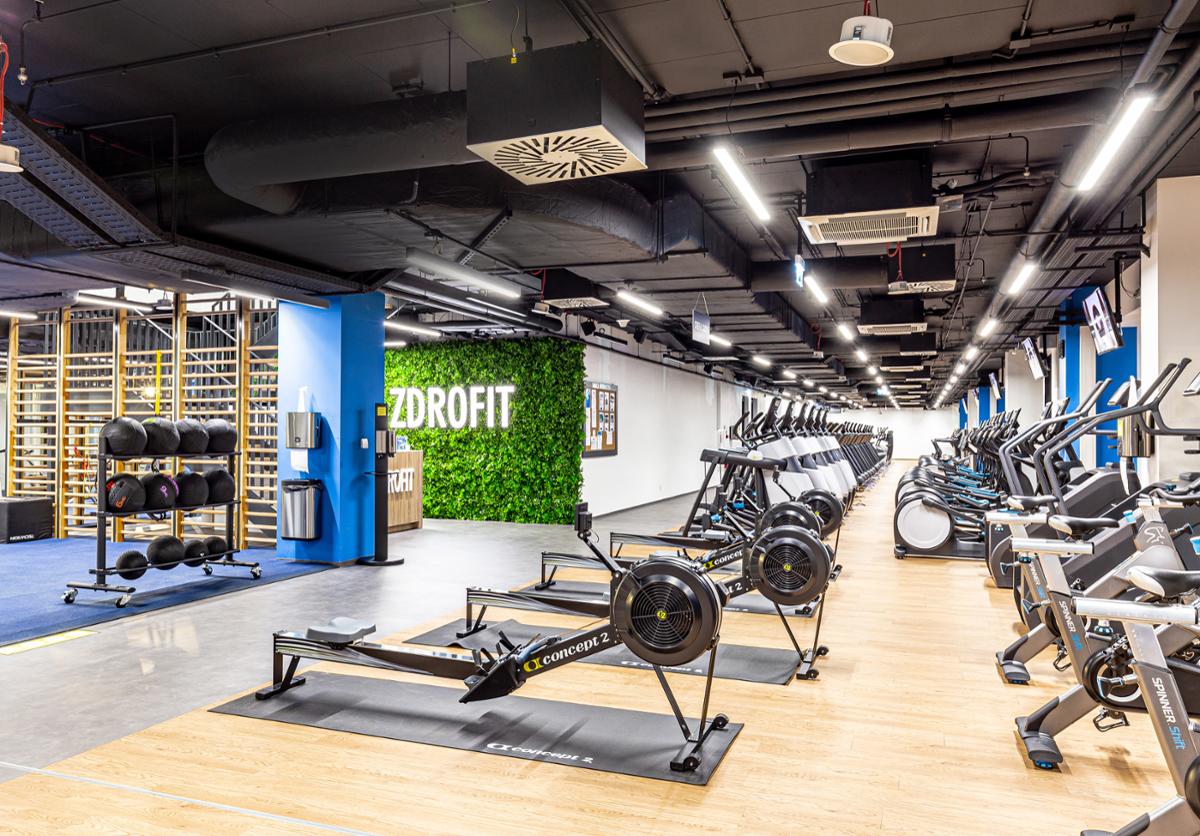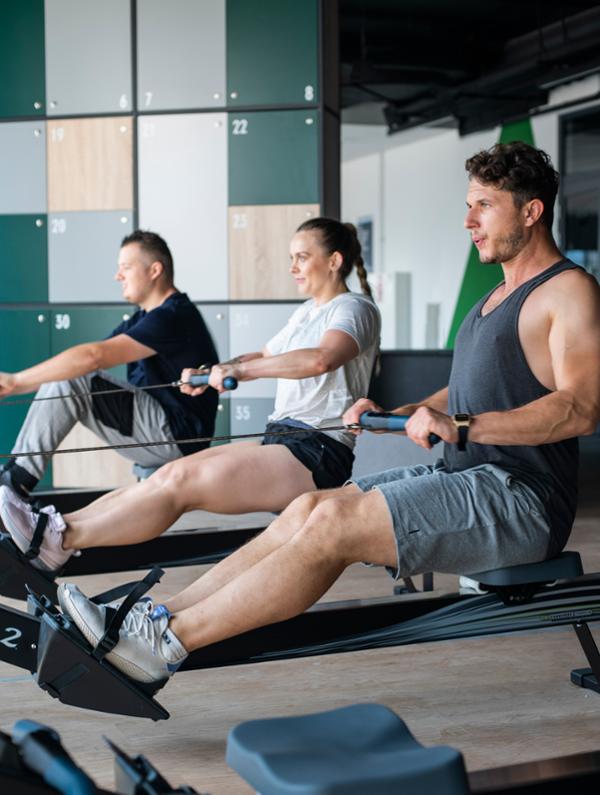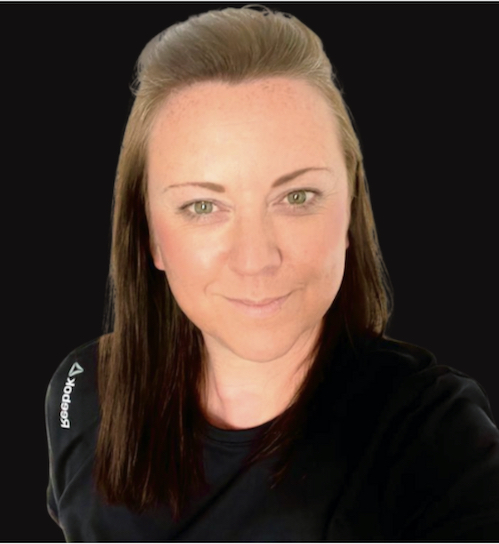Tell us about the Benefit Systems Capital Group
The company delivers employee benefits to business customers, including access to health and fitness and sports facilities.
Benefit Systems debuted on the Warsaw Stock Exchange in 2011 with an issue price of PLN 107 (€24, US$26, £21). Today, it’s worth many times that at around PLN 1,700 per share (€380, US$410, £326) at September 2023.
We’ve operated in the Polish market for over two decades now, and for many years have been one of the leaders in both the non-financial benefits and fitness markets.
Our flagship product is the MultiSport card, launched in 2004 by Benefit System’s founder, James van Bergh. This allows employees to access facilities across the country with the support of their employer and for employers to then settle their account directly with one entity, instead of transacting with a large number of individual companies.
What’s the scale of the business?
There are already 1.3 million people in Poland who use our MultiSport card every year, with more signing up all the time – in the first half of 2023 alone, we signed an additional 143,000 people.
The card currently gives them access to around 5,000 facilities spanning 40 activities and sports, from swimming and fitness, to yoga, dance, tennis, climbing and more. The list of partner facilities is constantly growing.
Globally, 1,800,300 people use the card. We also have over 190 of our own clubs in Poland that we directly own and operate and we’re growing this portfolio.
Zdrofit is the largest brand, with 93 locations and we also operate a number of other brands that we’ve acquired, including Fitness Academy, My Fitness Place, Fabryka Formy, StepOne, S4 Fitness, Total Fitness, FitFabric and Saturn Fitness.
We also have 25 of our own clubs outside Poland – 15 in the Czech Republic, nine in Bulgaria and one in Slovakia.
All these clubs and brands are operated and managed by a dedicated team of people working within the wider Benefit Systems business.
What other programmes do you offer in addition to the MultiSport card?
Benefit Systems has a rich portfolio of other services and non-financial solutions. Among them, it’s worth mentioning the MyBenefit platform, which enables employees to independently choose benefits within the scope and budget specified by the employer and the MultiLife programme, which focuses on employee wellbeing.
We also offer products connected with culture and entertainment, recreation, personal development, leisure and domestic and outbound tourism.
Internationally, we run our MultiSport programme in the Czech Republic, Bulgaria, Croatia and Slovakia and are testing it in the Turkish market.
Tell us more about your clubs.
They’re an important part of the MultiSport ecosystem, with over 200,000 members across our various club brands. Our facilities are in good locations. We focus primarily on large urban centres and most of the clubs are currently located in cities such as Warsaw, Krakow, Wrocław, Poznań and the Tri-City area (Gdańsk, Sopot and Gdynia).
Our clubs aren’t just about fitness classes, but also offer squash and badminton courts, pools and wellness zones – saunas, salt rooms, etc – to support post-training recovery. Kinesiotherapy – treatment through movement – is also an important part of our approach to health management, which we provide in cooperation with physiotherapists from our Healthy Place Zdrofit facilities.
What’s new in the business?
We continually review and update our offering to keep up with user needs and market trends. For example, with the growing focus on mental health since the pandemic, we’ve introduced classes to reduce stress, as well as building more extensive wellness zones.
We’re also growing our portfolio of fitness clubs, both organically and through acquisition. This year, we plan to open clubs in Kraków, Poznań, Łódź and Warsaw. Meanwhile, in February of this year, we acquired 16 Calypso Fitness clubs – located in the Tri-City, Szczecin, Warsaw, Wrocław and Częstochowa – and in April we acquired six mid-market Saturn Fitness facilities in Warsaw, Kraków, Gdynia, Łódź, Chorzów and Gorzów Wlkp.
We just took over a business called YesIndeed that specialises in loyalty, incentives and sales support programmes and gamifies programmes that support business improvement (www.yesindeed.pl).
Find out more about Benefits Systems’ operational performance at www.hcmmag.com/operations.
What’s your mission as a company?
Benefit Systems has for many years been an active promoter of sport and healthy lifestyles for all ages and social groups and the organisation is the driving force behind numerous events and programmes that support physical activity for children, adults and seniors.
We believe more activity means more energy, health and wellbeing – and as a result, a better life. Within this, a holistic approach and the availability of facilities to everyone are important to us.
Our goals in this area are delivered by – among other things – our MultiSport Foundation. One Foundation initiative is the Active MultiSport Schools programme, where students aged 12–19 years train in our clubs under the watchful eye of teachers and trainers as part of their PE lessons.
We wanted to address the alarming decline in the physical condition of young people, and so far 5,000 children from 20 schools have taken part in over 1,200 hours of training. We’ve also delivered classes for students aimed at preventing or correcting bad posture.
Meanwhile, the Foundation’s Full of Sport campaign breaks the stereotypes related to sport and physical activity for people with disabilities.
We want to show that physical activity is for everyone, and that for people with disabilities, it also brings additional advantages, building relationships and including this group in social life to counteract isolation and loss of self-esteem.
Tell us about your social impact
After the pandemic lockdowns, people in Poland started attending sports facilities with their health in mind. Currently, 42 per cent of those attending say they do so for better mental health, while 25 per cent cite preventative healthcare.
This is a big change: in the past, body shape and physical condition were usually cited as the main motivators for training.
Almost half a million people exercise in our clubs every month, which equates to around 15 per cent of what we define as the physically active population, and this number is constantly growing (Editor’s note: Poland’s population is 41 million, so this indicates that Poland has an active population of 3.3m people or 8 per cent of the total population).
We’re the largest player in the Polish fitness market and are very conscious of our role in society, investing in campaigns such as ‘How good’, which aimed to bring down the barriers to entry.
The campaign addressed the stereotypes of it only being fit people who exercise in clubs and showed how a club is a great place to take care of your mental and physical health, reduce the effects of stress and build your immune system – all under the watchful eye of trainers and instructors from the very first visit.
Meanwhile, our annual MultiSport Index survey shows that almost every 5th respondent (18 per cent) exercises five times a week or more, while (17 per cent) are active three to four times a week.
In this year’s report, we see a growing interest in fitness clubs: one-third of respondents had used a club in the three months preceding the survey – up around 11 per cent and the highest increase in popularity among all activities. It’s clear that what we do is both important and in demand.
What impact do you have on the corporate world?
Our positive impact on the business environment is also a strong focus for us, supporting end-users and employers to harness physical activity to counteract stress and improve work-life balance. In our MultiSport Index 2023 survey, published in May this year, 82 per cent of MultiSport card users said physical activity made them feel better, while 94 per cent agreed that physical activity translates into greater energy, motivation and commitment at work (www.hcmmag.com/multisportindex23).
We also know that a 10 per cent increase in the number of Polish people who meet the basic World Health Organization physical activity recommendations could translate into an improvement in employment rates and an approximate 2 per cent decrease in absenteeism.
As a result, it could bring significant savings to the economy, amounting to about PLN 1 billion a year (€224 billion, US$241 billion, £191 billion), so we continue to focus on growing the number of people who use our MultiSport card.
Any other important initiatives to mention?
Sustainability is a vital part of our organisation’s DNA. We’re part of the B Corp movement (www.bcorporation.net). We passed the first certification in 2018 and received recertification at the beginning of this year.
Meanwhile, our proprietary Dobry MultiUczynek programme has been operating since 2015 – an employee volunteering programme under which our team can engage in social initiatives with the financial support of Benefit Systems. In 2022, together with our employees, we donated PLN 200k (€45k, US$48k, £38k) to the Nienieodpowiedzialni Foundation, which helps victims of the war in Ukraine.
Another great initiative we’ve run for many years is a financial loan programme for our sports facility partners, to help modernise the sports infrastructure in Poland and in turn popularise health and active lifestyles among different social groups.
After lockdown, we also donated a further PLN 4m (€895k, US$965k, £766k) to support sports facilities in resuming operations.
What are your plans moving forward?
We’re constantly looking for new solutions, both in terms of expanding the fitness network and enhancing services for our users.
In new facilities, where we aren’t restricted by existing layouts or space, we focus on wellness zones and recovery as a natural extension of the training offering, including physiotherapy as mentioned.
This is increasingly important, as more people experience the negative effects of a sedentary lifestyle: in 2021, 86 per cent of adult Poles said that they suffered from back pain, while 13 per cent said that their condition had worsened during the COVID-19 pandemic.
I’m optimistic about the future of the health and fitness industry and what new technologies can bring to its development. We’re already able to monitor things such as the quality of sleep, glucose levels and heart rate, with the expansion of AI technology no doubt on the verge of bringing many more possibilities to the table.
We’ll also see growing numbers of digital solutions supporting people’s motivation and regularity of training, which is vital to keeping people in their routines.
We’re certainly constantly developing our own ZdrowAppka app, which is already a great guide to a healthy lifestyle. It combines the benefits of convenient use of our fitness clubs with preventative healthcare advice, motivational elements, recommendations for periodic medical examinations and the option to consult a doctor online.
What motivates you personally?
What motivates me most is the vision of an active society that’s aware of the benefits of exercise. As a former athlete, I appreciate even the smallest changes in the way our customers function – swapping the couch for a cycle or a walk, or taking the elevator instead of the stairs. I believe small steps such as these can change our lives in the long term.
I’m also extremely pleased that our fitness networks employ dedicated trainers and instructors who help our customers change their habits. Every individual who improves their health and quality of life thanks to training is a success story. This is a great motivation for me and for the whole team.








